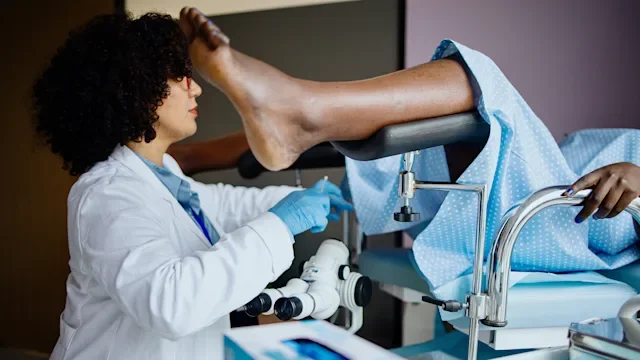Key takeaways:
Drinking a lot of alcohol over a long period of time can change your menstrual period and hormone levels.
Alcohol can make period cramps worse, cause dehydration, and make your period heavier.
Monitoring how much you drink is important to maintain a balanced and regular menstrual cycle.
It may be hard to believe that the alcohol you drink might have an effect on your menstrual cycle. But, if you have irregular, painful, or heavy periods, you may want to be careful when raising your glass.
It's usually OK for most women to enjoy an occasional drink. But, drinking too much over a long period of time could mess with your hormones. And this can lead to changes in the menstrual cycle. It’s important to know how alcohol and your period are linked to make choices that promote good health of your reproductive system.
What is a regular menstrual cycle?
A regular menstrual cycle is a series of natural changes in the female reproductive system. They typically occur over 28 days, but it can range from 21 to 35 days. It starts from the first day of one period to the first day of the next. The menstrual cycle is divided into these phases:
Menstruation (days 1-5): This is when your body sheds the uterine lining, starting your period.
Follicular phase (days 1-13): From the first day of your period until ovulation, the ovaries make sacs (follicles) with eggs.
Ovulation (around day 14): In the middle of the cycle, a mature egg is released for possible fertilization.
Luteal phase (days 15-28): After ovulation, the sac changes into the corpus luteum, preparing the uterus. If no pregnancy happens, it breaks down, triggering your period.
A regular menstrual cycle is a sign of good reproductive health.
How does drinking alcohol affect your period?
The menstrual cycle involves a complex balance of hormones like estrogen and progesterone. This balance is controlled by the brain’s hypothalamus and pituitary gland, the ovaries, and uterus. Drinking alcohol can disrupt this balance and affect the menstrual cycle in four ways:
Hormone imbalance: Alcohol can affect the levels of estrogen and progesterone. This can have an effect on your menstrual cycle, like irregular periods or even amenorrhea (the absence of periods).
Worsening menstrual cramps: Alcohol can raise prostaglandin levels. Prostaglandins are chemicals released during your period. They’re responsible for triggering contractions in the uterus. Higher levels of prostaglandin can worsen period cramps.
Dehydration: Alcohol can make you pee more, potentially leading to dehydration. One small study showed that people who are better hydrated may have a shorter bleeding time and less intense period cramps.
Increase in menstrual flow: Alcohol can boost estrogen levels. This stimulates growth of the lining of your uterus that you shed during your period. And, it might result in a much heavier period flow.
How long can alcohol delay your period?
It’s hard to say whether alcohol will delay your period. The effect that drinking alcohol will have on your period will vary from person to person. Other factors that impact the effect alcohol has on your period include:
How healthy you are
How much alcohol you drink
Your stress levels
Your food habits
A good rule of thumb is, if your period hasn't come for 3 months and you're not pregnant, talk with your healthcare provider for advice.
Read more like this
Explore these related articles, suggested for readers like you.
How much alcohol will throw off your period?
Figuring out how much alcohol it takes to affect your period is tricky because it's different for everyone. How much and how often you drink and will have an effect on how it impacts your menstrual cycle.
But, moderate drinking for women is defined as consuming no more than one drink per day. Adhering to this guideline is a practical approach to help support regular menstrual cycles.
When should you see your doctor about irregular periods?
If you drink alcohol or not, knowing when to see your healthcare provider about period issues is important. If you notice persistent irregularities or worrisome changes, scheduling an appointment is a good idea. It's time to talk with a healthcare professional if:
Your period suddenly changes a lot — like missed periods or very heavy bleeding.
Your periods are either closer together or further apart than usual.
You have menstrual cramps that make it hard to do your daily activities.
There’s a sudden increase in how painful your periods are.
You bleed between your period, after sex, or after menopause.
You have pelvic pain, unusual vaginal discharge, changes in bowel or urinary habits, or other symptoms.
You have health conditions, such as polycystic ovary syndrome (PCOS), thyroid disorders, diabetes, or other conditions that can affect your period.
During perimenopause and menopause, and for teens who have just started their period, it's normal for the cycle to be irregular. But, if you have any concerns about your period, they should be addressed. Your healthcare provider can help identify the causes and advise the best treatment.
The bottom line
Many people choose to drink alcohol during their period. And in most cases, this won’t have an effect on your menstrual cycle. But remember, it's important to drink in moderation. Heavy drinking for long periods of time can cause irregular periods, heavy bleeding, or more painful cramps.

Why trust our experts?


References
Cable, J. K., et al. (2023). Physiology, progesterone. StatPearls.
Carroll, H. A., et al. (2016). The relationship between alcohol consumption and menstrual cycle: A review of the literature. Archives of Women’s Mental Health.
Centers for Disease Control and Prevention. (2022). Frequently asked questions.
Gill, J. (2000). The effects of moderate alcohol consumption on female hormone levels and reproductive function. Alcohol and Alcoholism.
Hartman, T. J., et al. (2016). Alcohol consumption and urinary estrogens and estrogen metabolites in premenopausal women. Discover Oncology.
Hawkins, S. M., et al. (2010). Menstrual cycle: Basic biology. Annals of the New York Academy of Sciences.
National Health Service. (2023). Irregular periods.
Reed, B. G., et al. (2018). The normal menstrual cycle and the control of ovulation. Endotext.
Shim, U., et al. (2011). Long menstrual cycle is associated with type 2 diabetes mellitus in Korean women. Diabetes and Metabolism Journal.
Torkan, B., et al. (2021). The role of water intake in the severity of pain and menstrual distress among females suffering from primary dysmenorrhea: A semi-experimental study. BioMed Central Women’s Health.
Wiese, J., et al. (2004). Effect of Opuntia ficus indica on symptoms of the alcohol hangover. Archives of Internal Medicine.


















